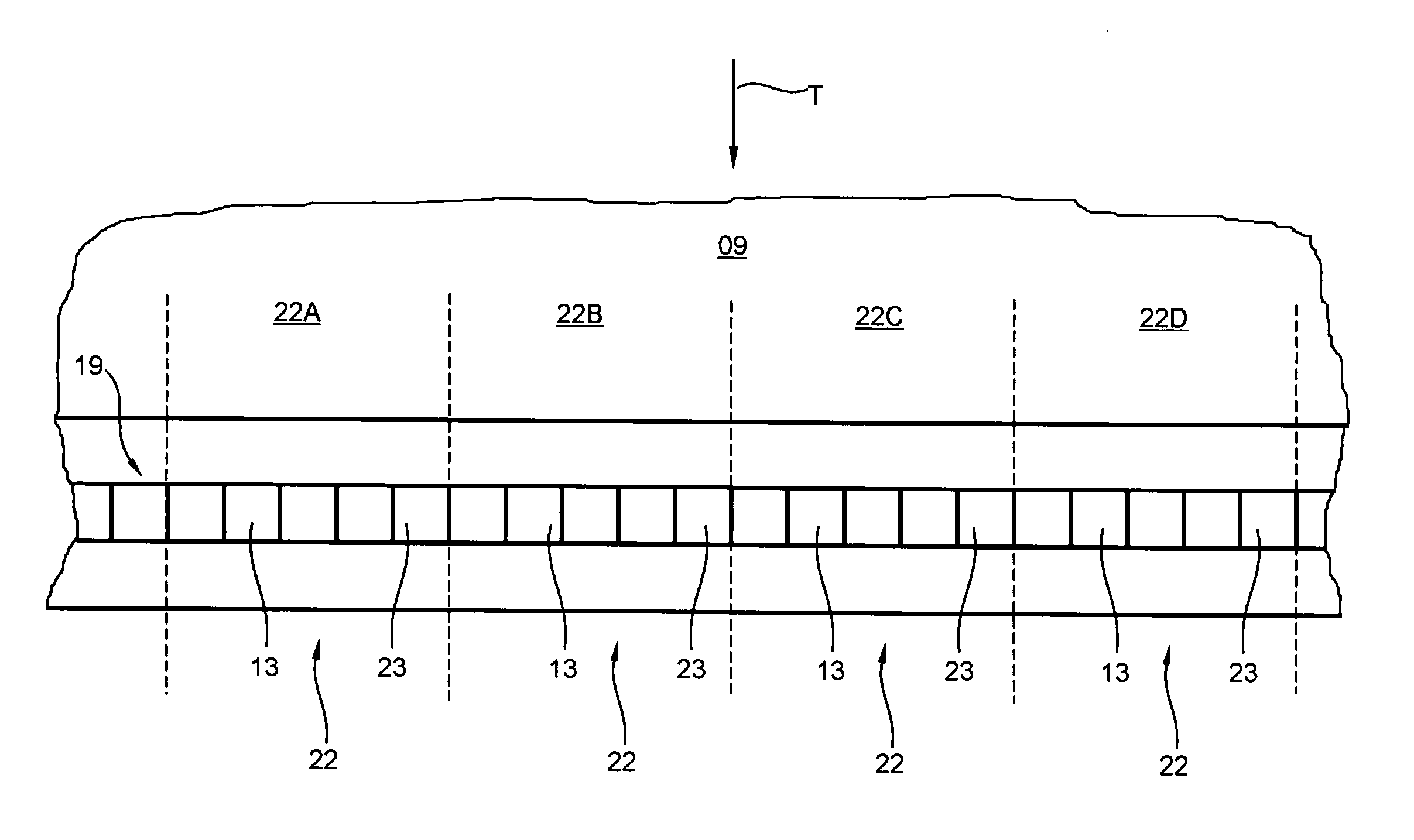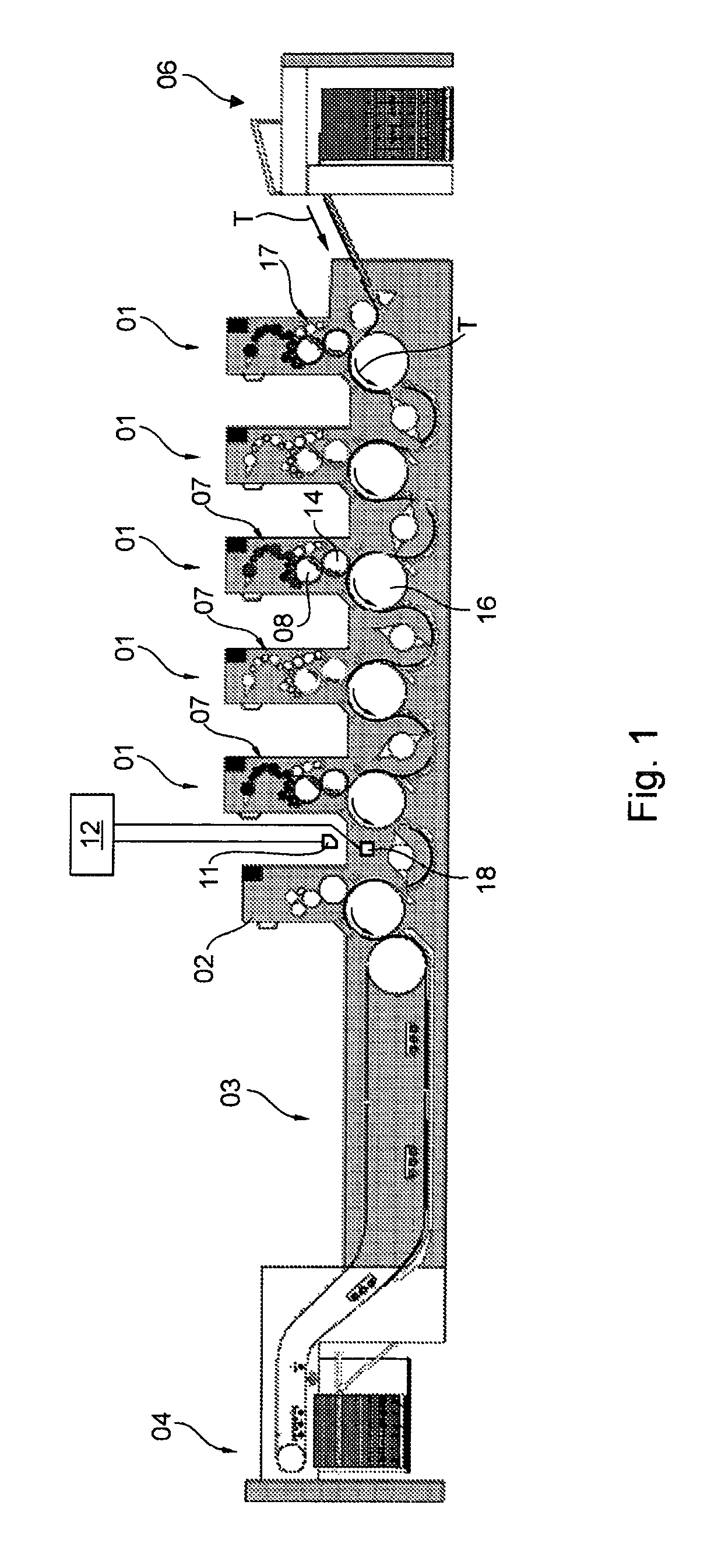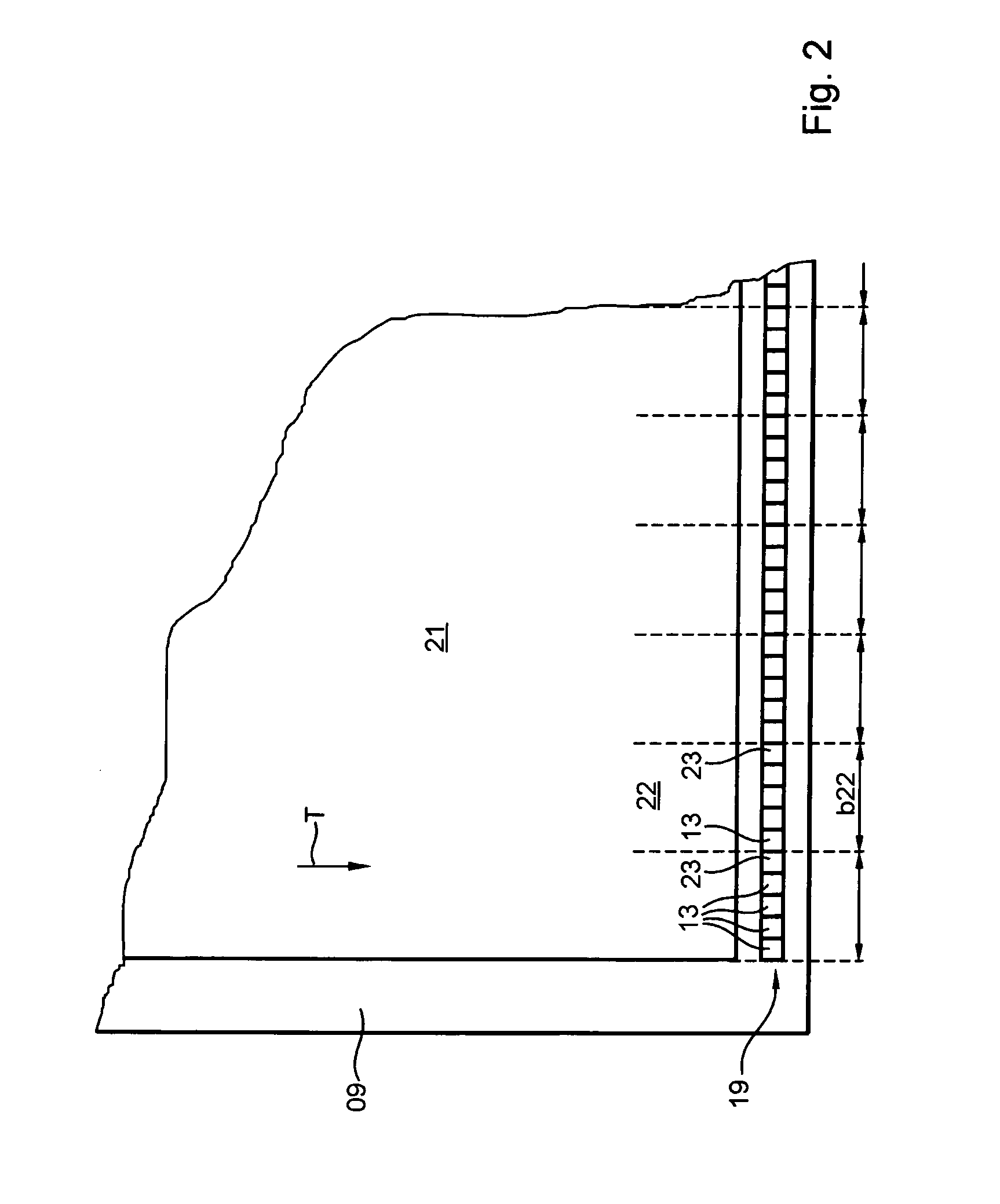Method for regulating the ink in a printing press
a printing press and ink technology, applied in printing, printing processes, office printing, etc., can solve the problem of ineffective active automatic ink regulation, and achieve the effects of preventing short-term disruption, stable control action of control devices, and high-efficiency production of high-quality printed products
- Summary
- Abstract
- Description
- Claims
- Application Information
AI Technical Summary
Benefits of technology
Problems solved by technology
Method used
Image
Examples
Embodiment Construction
[0021]FIG. 1 shows a printing press, embodied by way of example as a sheet-fed printing press. Alternatively, however, the printing press can also be embodied as a web-fed printing press. The printing press is particularly embodied as an offset printing press, wherein the printing press is able to print using a conventional or a waterless offset printing process, i.e. a process that prints without the addition of a dampening agent.
[0022]The printing press preferably has a plurality of printing couples 01, each of which imprints the same print substrate 09 (FIG. 2) with an ink, for example, in one of the colors black, cyan, magenta or yellow. In the example of FIG. 1, five printing couples 01 are provided in a linear arrangement, one in front of the other, in a direction of transport T of the print substrate 09 indicated by the arrow, wherein each of said printing couples 01 has, for example, at least one forme cylinder 08 which interacts with a transfer cylinder 14. Each forme cylin...
PUM
 Login to View More
Login to View More Abstract
Description
Claims
Application Information
 Login to View More
Login to View More - R&D
- Intellectual Property
- Life Sciences
- Materials
- Tech Scout
- Unparalleled Data Quality
- Higher Quality Content
- 60% Fewer Hallucinations
Browse by: Latest US Patents, China's latest patents, Technical Efficacy Thesaurus, Application Domain, Technology Topic, Popular Technical Reports.
© 2025 PatSnap. All rights reserved.Legal|Privacy policy|Modern Slavery Act Transparency Statement|Sitemap|About US| Contact US: help@patsnap.com



